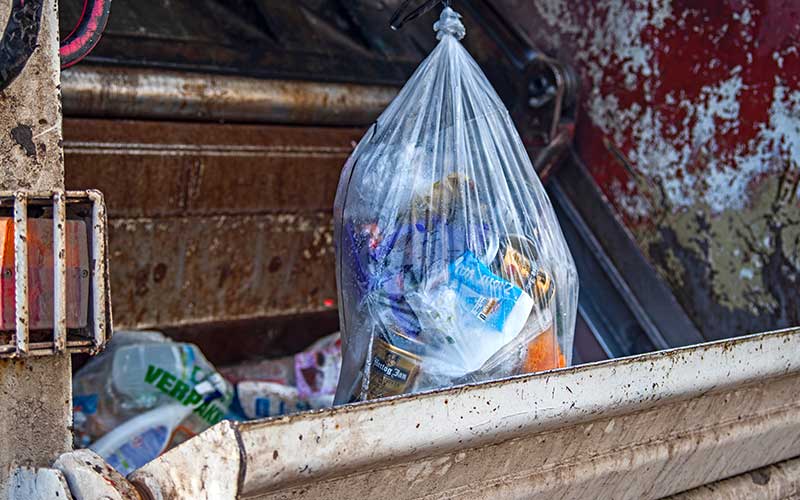
CLF is working alongside leaders and partners to identify legitimate health concerns and find solutions, while tuning out efforts by industries to profit from the pandemic. Photo: Lucas van Oort on Unsplash
Under cover of the pandemic, the waste industry is trying to demolish critical environmental protections. In April, the waste industry and Vermont’s Department of Environmental Conservation asked the legislature to delay implementation of the ban on food scraps in landfills. It also asked that recyclables be diverted, temporarily, to landfills. These requests were made under the guise of protecting the health of workers amid the COVID-19 pandemic. But they appear to be part of a push from waste industry groups to use the crisis to advance their own agenda in several New England states.
The health of frontline workers must be our first priority. But a sweeping rollback of these policies is simply the wrong approach. Plus, it further threatens public health, as well as our environment. There are common-sense solutions that will protect workers and also ensure we don’t needlessly set the state back after years of progress in cutting our waste.
If these changes are enacted, Vermont will be the first state in the country to go so far as to throw otherwise recyclable materials in the trash due to public health concerns. Instead, local and state leaders must work together to identify legitimate health issues and put solutions in place that protect workers without rolling back entire policies.
We Can Keep Frontline Waste Workers Safe
Our waste and recycling crews have stayed on the job amid the coronavirus outbreak, and for that, we’re grateful. We recognize the risk that comes with handling people’s household waste and recyclables at all times, including right now.
When it comes to protecting these essential workers, some relatively simple changes to current practices would go a long way. First, trash and recyclable haulers should wear personal protective equipment and reduce pick-up schedules to limit worker exposure. They can also direct workers not to pick up recyclables left outside the bin to minimize contact. Haulers can also collect recyclables and trash in separate trucks to limit worker interaction. Some cities and towns have already begun implementing these practices – and they are entirely possible to execute here in Vermont.
When it comes to protecting the line workers at waste processing facilities, they should all be provided with personal protective equipment immediately. This practice should be happening under normal circumstances, and is even more important today. These facilities can also slow down their lines and safely space workers six feet apart.
These are relatively simple solutions that waste haulers and facilities can implement with minimal effort and without setting back years of progress on environmental protection.
Delaying Food Scraps Ban Plays Into Waste Industry Agenda
When it comes to the food scrap ban, there do not appear to be any COVID-19-related health concerns with handling organic material. Unfortunately, the same groups that opposed this ban in the first place appear to be using the pandemic as cover in a last-ditch effort to try and stop it now. This law has been coming for some time and delaying its implementation now will only confuse people. It will also harm businesses that have been planning for a July 1 start date and have built their business model around it.
Unfortunately, efforts to use the pandemic to loosen regulations and environmental protections aren’t limited to Vermont. The Trump administration has put in place new guidance that allows polluters to police themselves during the crisis, while the plastic and fossil fuel industries are trying to advance their own agendas of rollbacks. The administration is also taking advantage of the pandemic to continue its assault on our public health and environmental laws.
Serving Vermont’s Communities
The health of people working every day to serve our communities must be the paramount concern during this pandemic. We have been working with our partners to oppose these rollbacks, calling on legislators to stand firm in their commitment to reform our waste systems.
Alongside our leaders and partners, we will work together to identify legitimate health concerns and find solutions, while tuning out efforts by industries to profit from this pandemic.



